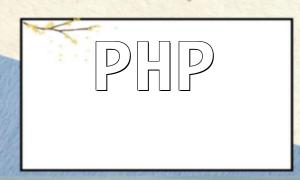With the rapid growth of e-commerce, flash sale events have become a crucial method to boost sales and attract users. However, traditional systems often struggle to meet the demands for real-time response and stability under high concurrency. Effective handling of push notifications and real-time recommendations is essential to address these challenges.
During flash sales, a large number of requests arrive simultaneously. Direct database operations can lead to performance bottlenecks or system crashes. Using message queues for asynchronous processing helps distribute the load, with backend consumers handling messages gradually to ensure system stability.
Cache technology alleviates database pressure by temporarily storing flash sale requests with tools like Redis or Memcached, setting appropriate expiration times to reduce database writes.
Strict concurrency control is necessary to avoid overselling. This can be achieved by checking purchase quantities or using distributed locks to ensure each user's purchase request is processed accurately and only once.
To implement personalized real-time recommendations, it is first necessary to analyze user preferences based on browsing and purchase behavior to uncover interest patterns that support effective recommendations.
Recommendation algorithms such as collaborative filtering and content-based methods analyze the correlation between users and products, dynamically generating relevant recommendations to enhance the user experience in the flash sale system.
To improve recommendation efficiency, results should be cached and preheated. Preloading popular product recommendations at system startup reduces computation on each request and speeds up response times.
// Implementing push notification handling with a message queue
$messageQueue = new MessageQueue();
$messageQueue->pushMessage($message);
// Storing flash sale requests in cache
$cache = new RedisCache();
$cacheKey = "seckill:request:$userId";
$cache->set($cacheKey, $request, $expiration);
// Concurrency control
$lock = new DistributedLock($productId);
if ($lock->lock()) {
// Process flash sale request
$seckillService->processSeckill($productId, $userId);
$lock->unlock();
}
// User preference analysis
$preferenceAnalyzer = new PreferenceAnalyzer();
$preferenceAnalyzer->analyze($userId);
// Using recommendation algorithms for real-time recommendations
$recommendationEngine = new RecommendationEngine();
$recommendation = $recommendationEngine->getRecommendation($userId);
// Cache preheating
$cache = new RedisCache();
$cacheKey = "recommendation:$userId";
if (!$cache->has($cacheKey)) {
$cache->set($cacheKey, $recommendation, $expiration);
}The code above provides a basic implementation of push notification and real-time recommendation handling. Practical use cases should tailor and optimize this code based on specific requirements.
Effective handling of push notifications and real-time recommendations is critical for maintaining high efficiency and stability in PHP flash sale systems. Leveraging asynchronous message queues, caching to reduce database load, and robust concurrency control along with recommendation algorithms significantly enhances the system’s concurrency capacity and user experience during flash sale events.










